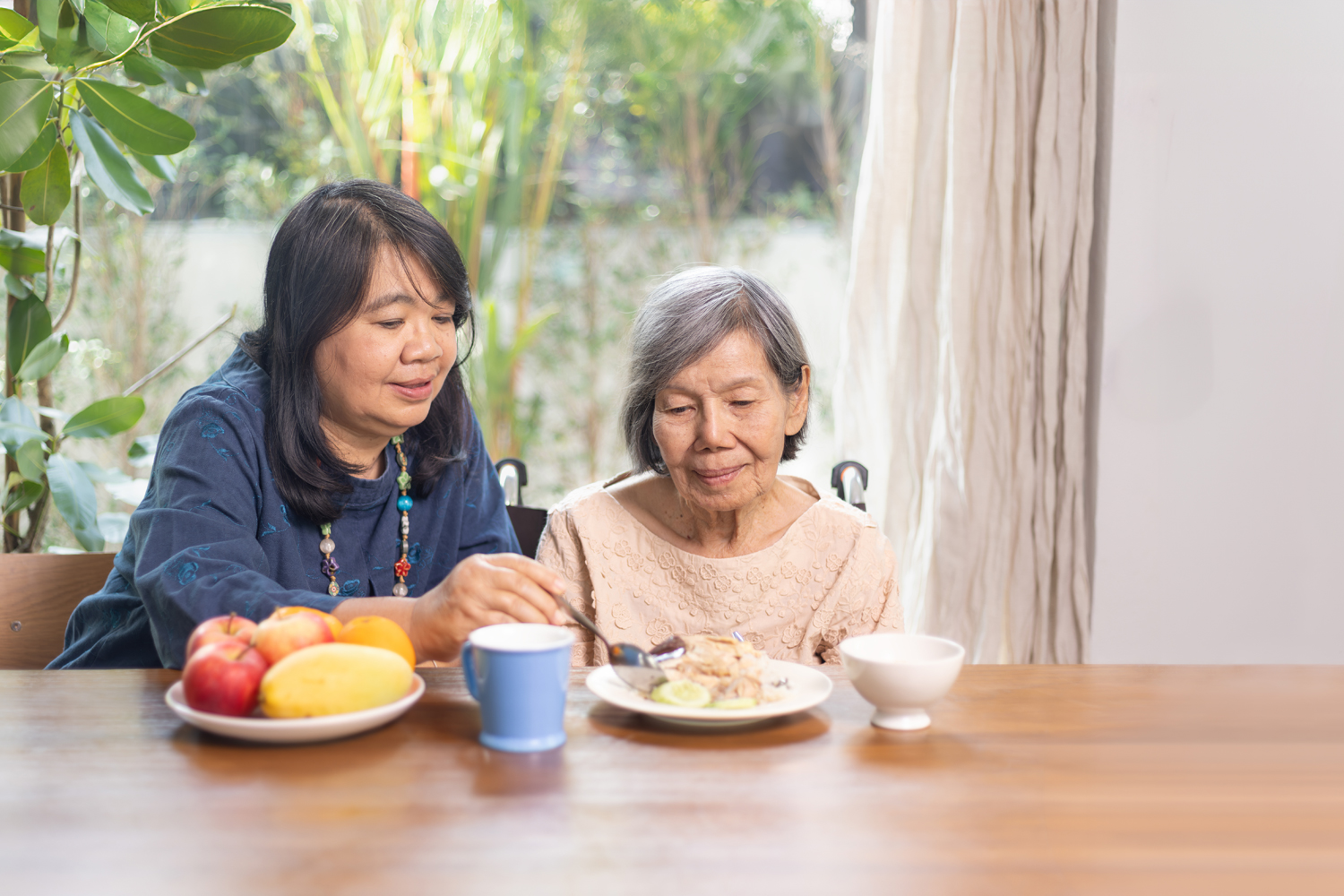
K.J. Bannan Photo by Suz Redfearn
AS A CAREGIVER, you’ve probably thought about tweaking your loved one’s diet to help nourish them and support them during treatment. But in our singular focus on meeting our loved one’s needs, we can easily lose sight of our own nutritional requirements.
“Caregivers are often too busy to focus on themselves so they might not eat well. They might not eat at all,” says Julie Thorsen, a registered dietitian and nutrition support clinical specialist at Inova Fairfax Medical Campus in Falls Church, Virginia. Caregivers may also eat too much or turn to fast food or sweets as coping mechanisms to deal with the stresses of caring for a loved one, she says.
Shifting from an unhealthy diet to one that provides good nutrition usually starts with planning. It requires taking time each week to sit down and figure out your schedule so you can coordinate meals, grocery shop, and feed yourself and your family in a healthy way. For family dinners, consider preparing meals ahead of time and freezing them. “Then they can be pulled out to cook when desired,” Thorsen says. “Cooking every two or three nights and planning for leftovers is a good idea, too, provided your family doesn’t hate leftovers.” Meal delivery and meal preparation kits, which often include all the necessary ingredients with recipes, provide another option—and many of these services focus on providing nutritious meals with fresh ingredients.
If you know you’ll be spending an entire day at the hospital while your loved one receives treatment, you can pack ahead so you have nutritious snacks, such as pretzels, low-fat cheese sticks, granola and cut-up fruits or vegetables, on hand, Thorsen says. “Fresh food is always best, but sometimes having things that are convenient, little packages that you can have in your purse or keep in your car, can work,” she says. When considering what to stock in your own kitchen, she recommends high-protein snacks such as hummus, lunch meat, nut butters, canned tuna and hard-boiled eggs. These foods give your body staying power as you move throughout the day.
If you don’t have time for making meals, consider delegating tasks by asking family and friends to do grocery shopping or to make some meals for you, she says. Websites, such as Meal Train, CaringBridge and CareCalendar, allow people to create a schedule so friends and family members can sign up to deliver meals on certain days.
Finally, talk to your loved one who has cancer to explore whether you might enjoy eating meals together in whatever way works for you. “Eating is social. Even if a patient is not eating well or does not have much appetite, they may prefer to eat with company and be with the family.” The routine and social act of coming together and talking over a meal can also result in having people inadvertently eat more than they thought they would—an added benefit for both you and your loved one.
Cancer Today magazine is free to cancer patients, survivors and caregivers who live in the U.S. Subscribe here to receive four issues per year.





